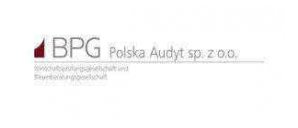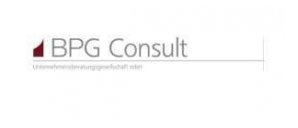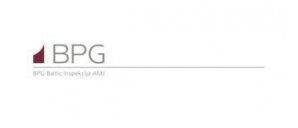
Istitution that supervise the auditors in poland
Will there be a new institution established to supervise the activities of statutory auditors in Poland?
In mid-August, the Ministry of Finance started work on a draft law, which provides for the creation of a new institution to supervise the activities of audit firms. The new law is intended to reduce the risk for investors and restore confidence in statutory auditors, which was damaged after the recent disclosure of improper practices by GetBack.
Who controls the controllers?
In the first half of 2017, the Polish Parliament approved the amendments of the Senate, ending the two-year period of consultation on the new bill. Since then every auditing firm has had to take into account the risk of having penalties or sanctions being imposed for incorrectly prepared financial statements. Although the newly introduced regulations are generally in line with the standards applied in most European Union countries, they have been described as more restrictive. This led, among other things, to an increase in the disproportion between the competitive position of large firms as compared to smaller audit firms.
The shocking information about the gross dishonesty of GetBack and the deception of its business partners, contributed to the deepening of the crisis. The Ministry of Finance had to quickly do something to calm down worried creditors. Fear of a repeat of the Amber Gold scandal was so great that they decided not to wait for the reports from individual clients.
The Ministry of Finance itself could have suffered from an unfavourable turn of events. Until the amendment of the 2017 law an audit of a company's financial statements could be supervised by the self-government of statutory auditors. However, the amendment of the regulations drawn up by the Ministry of Finance has transferred the burden of responsibility to the Audit Oversight Commission, an institution that operates within the Ministry of Finance.
Statutory auditors under scrutiny
Today monitoring of the audit industry is tasked to the Polish Chamber of Statutory Auditors and the Audit Oversight Commission. The Polish Credit Management Association and the Polish Financial Supervision Authority may provide further monitoring support. Recent reports from the officials at Świętokrzyska do not indicate precisely what the new division of competences between institutions would look like.
The proposed solutions are based on the operating model of the Polish Financial Supervision Authority, whose recommendations and issued warnings protect the banking system in Poland. No extension of the PFSA's powers to control the work of statutory auditors is anticipated, but most of the newly proposed solutions are ideas put forward by persons working in that institution.
The Polish Chamber of Statutory Auditors, i.e. the professional self-government body, can expect a significant decrease in the scope of its responsibilities. This is a clear signal from the Prime Minister's Office that the government intends to use the crisis to gain direct insight into the financial statements of listed companies in Poland. The pressure exerted on statutory auditors by two public institutions may prove to be too strong and will further limit the ability of auditors to perform their profession freely.
Is it just a bluff or a solid action plan?
The first announcements made are already a cause for concern. Financial statements published in the form of periodic reports and covered by a prospectus are to be verified by reputable and reliable auditors. The problem is that it is unclear as to what the the exact criteria are for being accepted as a reputable and reliable entity.
However, the Ministry of Finance, despite showing great determination, has its hands bound. Minister Teresa Czerwińska explicitly admits that a sudden revolution should not be expected because the ministry is bound by applicable laws. Also investors don't like sudden decisions that may disturb the market. So when should any changes be expected? It is estimated that the new institution won't begin supervising audit firms until 2020. Until then, statutory auditors have time to familiarize themselves with the planned changes and prepare for the new reality.
Is the application of international accounting standards a right or obligation of the company? Who can and who must apply IAS.
It is the practice of companies listed on the Polish stock exchange to prepare financial statements based on various accounting standards. What is the reason for this? Making use of differences in regulations can have a decisive meaning for the company's financial condition. The key question is, which entities can and which must use international accounting standards and what are the resulting consequences?
IAS compared to Polish accounting standards
The Accounting Act contains a detailed list of entities that have to comply with international recommendations. Did the legislator therefore conclude that the national guidelines are less precise and, consequently, the reports may not show an adequate level of detail? The truth lies somewhere in the middle.
Conducting reporting according to National Accounting Standards does not cause any infringements and is consistent with the art of accounting. The reason for recommending adoption of international practices is the market power of the entities subject to this obligation. The legislator is aware that IAS regulations have a much wider scope and their application requires more effort from companies.
Who can and who must apply IAS?
Art. 55.5 of the Accounting Act imposes the obligation on two types of entities. International Accounting Standards must be applied to the consolidated financial statements of banks and issuers of securities (including shares, bonds) traded on a regulated market. This clarification is significant because not every market on the WSE is regulated. This means that companies quoted on the NewConnect are exempt from the obligation because this market operates as an alternative trading system.
The list of entities that voluntarily decide to implement IAS standards is much longer. One should also take into account additional tightening. Each company whose financial statements comply with IAS must audit them, as set out in Art. 64.3. The following entities have the right to apply international standards:
- issuers of securities wishing to apply for admission to public trading or trading on one of the regulated markets of countries belonging to the European Economic Area (EEA);
- issuers of securities seeking admission to public trading or trading on one of the regulated markets of EEA countries;
These entities may use IAS to create consolidated and separate statements. Other entities that may use IAS are those that form part of capital companies in which the parent company is subject to the obligation to apply IAS and branches of foreign entities, as long as the reporting in the home country is made in accordance with IAS.
What are the consequences of choosing to apply IAS?
The application of IAS, in practice, may affect the core business of the company. One of the biggest challenges facing companies in 2019 will be the adaptation of the financial statements to the new IFRS 16 standard regarding leasing. Under the planned regulation, the conclusion of each long-term lease agreement contributes to increasing the assets and liabilities of the lessee. An unfavourable effect on the level of indebtedness may lead to doubts on the part of investors and shareholders.
Stakeholders should therefore be informed about the reasons for shifts in the balance sheet, in the commentary to the financial statements for a given financial year. Reliable forecasts regarding the consequences of implementing the standards must also take into account the specificity of the market on which the company operates, because not all records will be of key importance for each company. The European Securities and Markets Authority (ESMA) indicates that the level of such disclosures is insufficient. Companies are no longer able to justify ignorance of the expected effects in explanatory notes or to use generalizations, so management bodies must be particularly vigilant in this regard.
return










